The sun and earth -> potassium
Potassium
Potassium is a chemical element with the symbol K and atomic number 19. It is a soft, silvery-white metal that reacts violently with water and air. Potassium is an essential mineral that plays a key role in various bodily functions.
Properties of Potassium:
- Atomic number: 19
- Symbol: K
- Atomic mass: 39.10
- Physical state at room temperature: Solid
- Color: Silvery-white
- Boiling point: 1,413°C (2,575°F)
- Melting point: 337°C (639°F)
Uses of Potassium:
Potassium has several important uses, including:
- As a nutrient for plant growth in fertilizers
- In the production of soaps and detergents
- As a component in some types of glass and ceramics
- In various industrial processes
Health Benefits of Potassium:
Potassium is an essential mineral that has several important health benefits, including:
- Regulating fluid balance in the body
- Supporting muscle contractions and nerve signals
- Helping to maintain healthy blood pressure
- Reducing the risk of kidney stones and bone loss
Sources of Potassium:
Potassium is found in a wide variety of foods, including:
- Fruits such as bananas, oranges, and avocados
- Vegetables such as spinach, potatoes, and tomatoes
- Legumes such as lentils and beans
- Nuts and seeds
Study Guide:
To study potassium effectively, focus on the following key points:
- Understand the properties of potassium, including its atomic number, symbol, and physical state.
- Learn about the uses of potassium in various industries and its importance as a nutrient for plant growth.
- Explore the health benefits of potassium and its role in maintaining overall well-being.
- Identify sources of potassium in foods and understand the importance of including potassium-rich foods in a balanced diet.
By mastering these key points, you will develop a comprehensive understanding of potassium and its significance in both scientific and practical contexts.
.◂Science Worksheets and Study Guides Second Grade. The sun and earth
Study Guide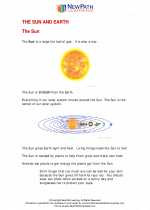 The sun and earth
The sun and earth  Activity Lesson
Activity Lesson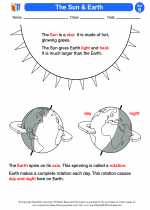 The Sun & Earth
The Sun & Earth  Worksheet/Answer key
Worksheet/Answer key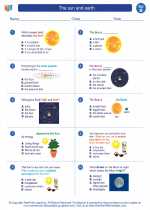 The sun and earth
The sun and earth  Worksheet/Answer key
Worksheet/Answer key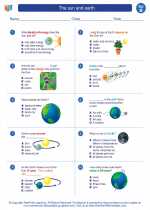 The sun and earth
The sun and earth  Worksheet/Answer key
Worksheet/Answer key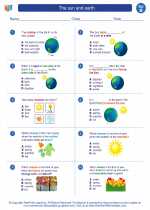 The sun and earth
The sun and earth  Worksheet/Answer key
Worksheet/Answer key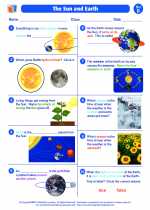 The Sun and Earth
The Sun and Earth  Vocabulary/Answer key
Vocabulary/Answer key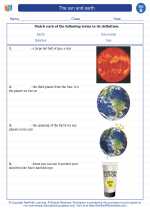 The sun and earth
The sun and earth 

 Activity Lesson
Activity Lesson
 Worksheet/Answer key
Worksheet/Answer key
 Worksheet/Answer key
Worksheet/Answer key
 Worksheet/Answer key
Worksheet/Answer key
 Worksheet/Answer key
Worksheet/Answer key
 Vocabulary/Answer key
Vocabulary/Answer key

The resources above cover the following skills:
Concepts of Earth Science: A student should understand and be able to apply the concepts, processes, theories, models, evidence, and systems of earth and space sciences. A student who meets the content standard should:
Develop an understanding of the cyclical changes controlled by energy from the sun and by Earth's position and motion in our solar system.